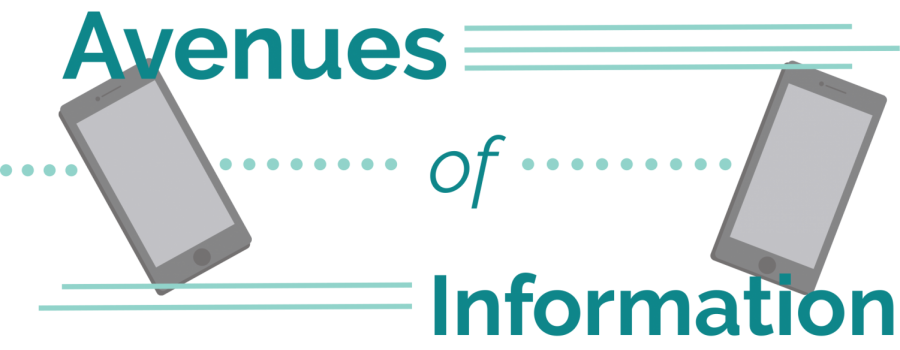Avenues of Information
With apps such as Groupme, Remind, and more, connecting to teachers has never been easier; has this changed the idea of communication? Is it too easy for students to contact their teachers?
With technology being everywhere, communication should be easy. Email, text, and hundreds of apps that are available mean that there is never an excuse for radio silence. But being available 24/7 could also mean a lot of added stress. How are teachers adapting to these changes?
As technology bridges the gap between teacher and student, some may find it hard to make a distinction from work and personal time. Teacher John Lane says that he struggles with this, but he just turns his phone off.
“I’m old school that way,” he explains.
Similarly, Stu Stern says that he doesn’t check his email on Saturdays and occasionally will catch up on Sunday nights.
Chemistry teacher Jane Bush says that she doesn’t necessarily feel bad about not answering a text message outside of school ours. Her ideology is that if she can’t help at the moment, that’s not anybody’s fault.
Apps like Groupme and Remind make group projects and classroom communication easier than they have ever been before. Out of thirty-two students surveyed, 81% said that they use Groupme and 71% use Remind. 75% of teachers surveyed said that they are asked questions several times a week on these apps.
Even without smartphone apps, most students have access to standard text messaging. 84.4% of students said that they have at least one teacher’s phone number. Two of the teachers interviewed said that they will selectively give out their phone number. Lane explained that he typically only gives his phone number to students in the Broadcast club who may need a pass into football games but can’t get into the Olathe District Activity Center before the ticket booth opens. One teacher said that they gave out their phone number this year, but didn’t in the past.
Lane says that Groupme is good for keeping up to date with things he is involved in like theatre and Broadcast Club. During his time as the technical theatre director, Lane says that he has had questions texted to him daily. Bush says she receives messages about once a week. She appreciates getting messages like “I was going to come in but now I can’t” or “Are you available to help me in the morning?” and have the ability to communicate with students for convenience.
Stern says that he rarely gets messages from students.
31% of students admit to texting a teacher as late as 10:00 and 13% have sent an inquisitive text at 11:00 or later. Two teachers surveyed claim that if they are awake, then they will respond, while one teacher said that they will respond no later than 6:00. Bush and Stern both agreed that they will respond if they are able.
Some teachers, like Lane, have more rigid sleep schedules and usually not respond past 8:00. Lane wakes up at 4:00 to train for marathons, and goes to bed earlier than most.
Of course, while constant communication has its benefits, it has its pitfalls as well. “The students who need that direct connection the most are often those who don’t connect at all,” Lane says. Stern believes that being able to communicate is both a blessing and a curse. “There have been major problems when boundaries are stepped over” says Stern. In the same vein, Bush shared that “I do think if a teacher doesn’t want to communicate kids need to respect that.”
While the rise of technology can never truly be avoided, everyone has the right to their own ideas of what moderation is. Every individual has to find the right amount of communication that works for them and their environment.

Number of years on the paper: This is Mile's second year on the paper
Grade Level: 12th grade, Senior
Favorite part of Newspaper: "I like seeing...

Number of years on the paper: This is Andrea's third year on the paper.
Grade Level: 12th, Senior
Favorite part of Newspaper: "work nights and...





